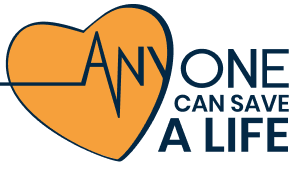The Condition
-
Almost 400,000 people in the U.S. suffer Sudden Cardiac Arrest (SCA) each year and less than 10% survive.
-
SCA occurs when the heart suddenly and unexpectedly stops beating.
-
At any one time, an estimated 20% of the U.S. population congregates on school grounds, increasing the likelihood of school-based cardiac emergencies.
-
In children and adolescents, the causes of SCA are varied and include heart conditions that result from abnormal heart structure or function, primarily electrical abnormalities and outside factors such as a sudden blow to the chest or drug use.
-
Up to six per 100,000 children in the United States experience SCA each year; approximately 25% occur during sporting events.
-
A victim of SCA will often complain of feeling faint or dizzy, usually during or just after exercise. They will rapidly lose consciousness and may gasp for breath for a short time.
The Treatments
-
Victims of SCA can be assisted by providing chest compressions and early defibrillation with an Automated External Defibrillator (AED).
-
Every second counts. When SCA occurs, chest compressions need to start immediately and an AED applied as soon as possible.
-
Survival rates decrease by 10% with each minute of delay.
-
There is a 5-6 minute window before death or irreparable brain damage occurs.
-
An AED is very easy to use. Just turn it on and follow the voice prompts.
-
An AED is safe and will only deliver a shock if it is needed.
-
An AED can only help if it is used.
The Symptoms below indicate that Sudden Cardiac Arrest (SCA) may be about to happen.
-
Racing heart, palpitations
-
Dizziness or light-headedness
-
Fainting or seizure, especially during or right after exercise
-
Fainting repeatedly or with excitement or startle
-
Chest pain or discomfort with exercise
-
Excessive, unexpected fatigue during or after exercise
-
Excessive shortness of breath during exercise
The following factors increase the risk of Sudden Cardiac Arrest (SCA):
-
Family history of known heart abnormalities or sudden death before age 50
-
Specifiic family history of long QT syndrome, Brugada syndrome, hypertrophic cardiomyopathy, or arrhythmogenic right ventricular dysplasia (ARVD)
-
Family members with unexplained fainting, seizures, drowning or near drowning, or car accidents
-
Known structural heart abnormality, repaired or unrepaired
-
Use of drugs such as cocaine, inhalants, or “recreational” drugs
